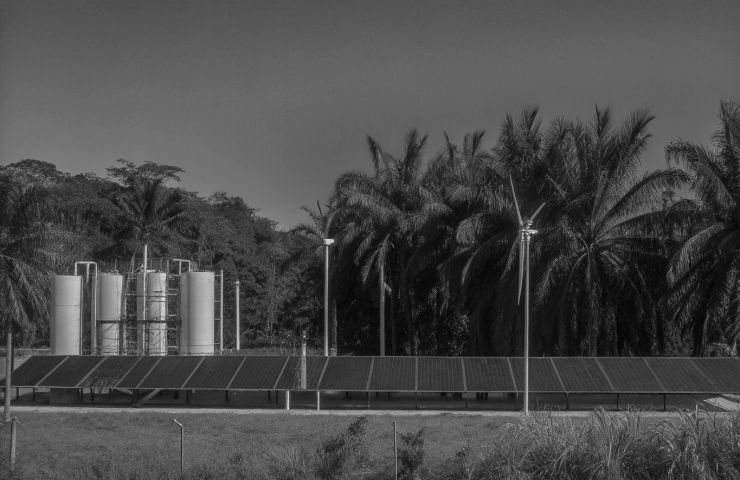
Low-Carbon Hydrogen Framework Propels Brazil’s Energy Transition
November 18, 2025At COP30 in Belém, Pará, Brazil’s Ministry of Mines and Energy (MME), led by Minister Alexandre Silveira, rolled out a streamlined legal and tax framework for Low-Carbon Hydrogen. This new decree weaves together the National Hydrogen Program (PNH2) and the Low-Carbon Hydrogen Development Program (PHBC). It’s a big leap that could turn Brazil’s renewable wealth into global clout and set the tone for the Brazil Hydrogen Policy.
This effort didn’t happen in a vacuum. Alongside the MME, the Management Committee of PNH2 (Coges-PNH2) is steering governance and progress checks. The Ministry of Development, Industry, Trade and Services (MDIC) and the Ministry of Finance chipped in to shape the tax perks. That tag-team setup ensures industrial policy and fiscal incentives move in lockstep, paving the way for a thriving Hydrogen Market.
Here’s the simple but powerful play: tap into Brazil’s vast solar, wind and hydro resources to split water into Green Hydrogen, a zero-emission fuel. The decree also embraces Blue Hydrogen routes, pairing natural gas with carbon capture to keep emissions under control. Every project has to jump through life-cycle assessments and meet the bar set by the Brazilian Hydrogen Certification System (SBCH₂), boosting buyer confidence both at home and abroad.
At the core is the SBCH₂ Hydrogen Certification, a clear way to trace carbon footprints and origin, giving Brazil quality credentials. On the fiscal front, qualified facilities can pause PIS/Pasep and Cofins taxes for five years starting January 2025 under the Rehidro model. And with Coges-PNH2 running regular check-ins, there’s a built-in feedback loop to fine-tune policies and hit targets.
Historical Momentum and Pilot Projects
Brazil’s not new to this story. For the last decade, states like Ceará have trialed electrolyzer tech in remote communities and industrial parks. With a national framework now in place, those one-off pilots can scale up, knitting together isolated tests into a unified, market-ready industry.
The beauty here is the “made in Brazil” angle. By leaning on local R&D and manufacturing know-how, the plan cuts lead times and costs. We’re looking at pilot plants from the Amazon hub in Pará to sugarcane zones in the Southeast. That homegrown spirit isn’t just a slogan—it’s a launchpad for new value chains, factory revivals and skilled roles in engineering, operations and R&D.
This isn’t green shiny object syndrome. Low-Carbon Hydrogen will decarbonize tough sectors like steel, fertilizer and long-haul transport. It’s a linchpin in Brazil’s energy transition—critical to slashing emissions up to 67% by 2035 under our NDC. Plus, Green Hydrogen exports could become a lucrative new revenue stream as Europe and Asia ramp up clean-fuel imports.
Brazil is already in talks with the EU, Japan and South Korea to fast-track tech transfers and secure off-take deals. With crystal-clear Hydrogen Certification and competitive fiscal terms, we could carve out a sweet spot as a trusted supplier in the global Hydrogen Market.
Social and Environmental Considerations
Rolling out Low-Carbon Hydrogen at scale means balancing growth with social and environmental safeguards. The framework builds in monitoring to prevent resource grabs and protect water in sensitive regions. Community engagement is front and center, ensuring locals—from Pará’s Amazon communities to small towns—share in the jobs and infrastructure gains.
Technical Standards and R&D Boost
Beyond certification, the decree spells out technical standards for electrolyzer performance, storage safety and distributed hydrogen networks. That clarity will turbocharge federal labs and universities, driving down costs through innovation and cutting our reliance on imported gear.
Challenges and Mitigation Strategies
No sugarcoating it: scaling this up means tackling infrastructure gaps, financing hurdles and competition for land and water. The government’s staggered rollout—with Coges-PNH2 leading policy reviews and stakeholder consultations—will spot snags early. They’re also eyeing public-private partnerships and blended finance models, plus pilot runs to test logistics before full deployment.
Brazil’s long been a renewables trailblazer—over 60% of our power comes from hydro, and we’re biofuels frontrunners. This push into Low-Carbon Hydrogen builds on that legacy, diversifying our energy mix and cutting fossil dependency. It’s the next logical chapter after years of policy evolution, from tightened NDC goals to initial hydrogen roadmaps.
Bottom line: Brazil’s low-carbon hydrogen project marks a turning point. With clear rules, cross-minister collaboration and a spirit of innovation, we’re ready to turn our renewable riches into clean energy, spark new industries and fuel sustainable growth for decades. The future looks promising.



 With over 15 years of reporting hydrogen news, we are your premier source for the latest updates and insights in hydrogen and renewable energy.
With over 15 years of reporting hydrogen news, we are your premier source for the latest updates and insights in hydrogen and renewable energy.